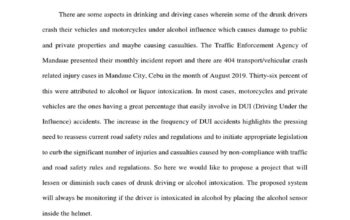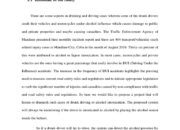In the annals of contemporary history, the early 21st century stands as a pivotal epoch, urging an inquiry into the implicit and explicit promises enshrined within the scientific enterprise. Two decades hence, reflection on the trajectory of scientific advancement raises pivotal questions: Has science indeed fulfilled its manifold pledges? The exploration of this query necessitates an examination of the broad spectrum of scientific domains, encompassing health, technology, environment, and socio-political discourses.
Initially, the realm of health and medicine offers an illuminating perspective. The promise of transformative medical breakthroughs has perpetuated an optimism that seemed unfettered in the early phases of the new millennium. The sequencing of the human genome heralded unprecedented potential, positing the notion of personalized medicine at the forefront. Molecular biotechnology flourished, foreshadowing targeted therapies that circumvented conventional treatment paradigms. However, the reality is nuanced. The complexities of genetic expression and the multifactorial genesis of diseases have rendered some of these initial aspirations elusive. Despite significant strides, pivotal diseases such as cancer and neurodegenerative disorders remain recalcitrant challenges, raising inquiries regarding the efficacy of research trajectories pursued over the past two decades.
Moreover, the emergence of digital health technologies has revolutionized patient engagement, promising improved health outcomes. Wearable devices and telemedicine have proliferated, encouraging self-reporting and preventative care. Yet, an insidious paradox emerges: the digital divide accentuates existing health disparities. The promise of democratized access to health information has faltered for marginalized populations who lack the requisite technology or digital literacy. Hence, while science has enabled innovative platforms for health management, the equitable dissemination of these advancements remains a significant hurdle.
Turning to environmental sciences, the past two decades provide a clear dichotomy. The urgency of climate change has galvanized scientific inquiry. Researchers have elucidated the mechanisms underlying anthropogenic effects on ecosystems, generating predictive models that enable more informed policymaking. The Paris Agreement epitomizes international recognition of the pivotal role that climate science plays in shaping global policy frameworks. Nonetheless, the fulfilling of scientific promises is clouded by an apparent inertia in policy implementation. The gap between scientific consensus and political action engenders frustration among the scientific community. Despite the dire projections and the expanding evidence base, tangible actions to mitigate climate change remain insufficient. This incongruity raises critical questions about the interplay between scientific discovery and socio-political will.
Additionally, technological innovations bear the weight of scrutiny as society navigates an intricately connected digital landscape. The promises of artificial intelligence (AI) and machine learning heralded sweeping transformations across myriad sectors, from manufacturing to finance and beyond. Automation has purportedly the potential to enhance productivity and create novel employment opportunities. However, the specter of job displacement looms large, as entire industries become susceptible to obsolescence. The complexity of AI ethics and bias illustrates another layer of challenge, raising profound concerns regarding the implications of autonomous systems. While the technological landscape has evolved dramatically, the ethical and socio-economic ramifications necessitate thoughtful engagement.
In the sphere of materials science, remarkable advances have been witnessed, evident in the synthesis of nanocomposites and biomaterials. The promise of sustainable materials and greener manufacturing processes has engendered optimism across industries. However, the scalability of these technologies often falls short of projections. As the global community grapples with sustainability, the fluctuation between nascent technological potential and broad application underscores an ongoing struggle inherent in scientific advancement.
The discourse surrounding science’s promises is further complicated by scientific literacy and public perception. The rise of misinformation and anti-science sentiments has fostered a climate of skepticism that challenges the establishment of trust in scientific institutions. Public understanding of complex scientific concepts has not necessarily kept pace with advancements, leading to dichotomous narratives that often misrepresent scientific consensus. Addressing the chasm between scientific inquiry and public perception is pivotal for cultivating an informed citizenry capable of engaging with pressing societal issues.
Moreover, interdisciplinary collaborations have become indispensable, integrating knowledge from diverse fields to tackle multifaceted issues. This paradigm shift highlights the inadequacy of isolated scientific disciplines in addressing contemporary challenges. Promising interdisciplinary frameworks are emerging, yet the potential to fully harness collective expertise is contingent upon the willingness of policy makers and funding agencies to invest in holistic, integrative research approaches.
As this discourse unfolds, it becomes evident that while science has made indelible strides over the past two decades, the fulfillment of its promises is not a linear trajectory. The promise of scientific inquiry is accompanied by complexities that demand nuanced understanding and engagement at multiple societal levels. The interplay between scientific discovery, ethical considerations, technological advancements, and public perception underscores an intricate tapestry of progress and challenges.
In conclusion, two decades on, the question of whether science has kept its promises elicits a spectrum of responses. Scientific advancements have catalyzed profound changes in various domains. However, the realities of implementation, ethical implications, and public engagement unveil a tapestry of promises met with challenges. As we forge ahead, a concerted effort to bridge the gaps between scientific potential and societal needs remains paramount. The path of scientific inquiry, characterized by both achievements and setbacks, continually reshapes the future of human endeavor, calling for reflective dialogue and collaborative action.












